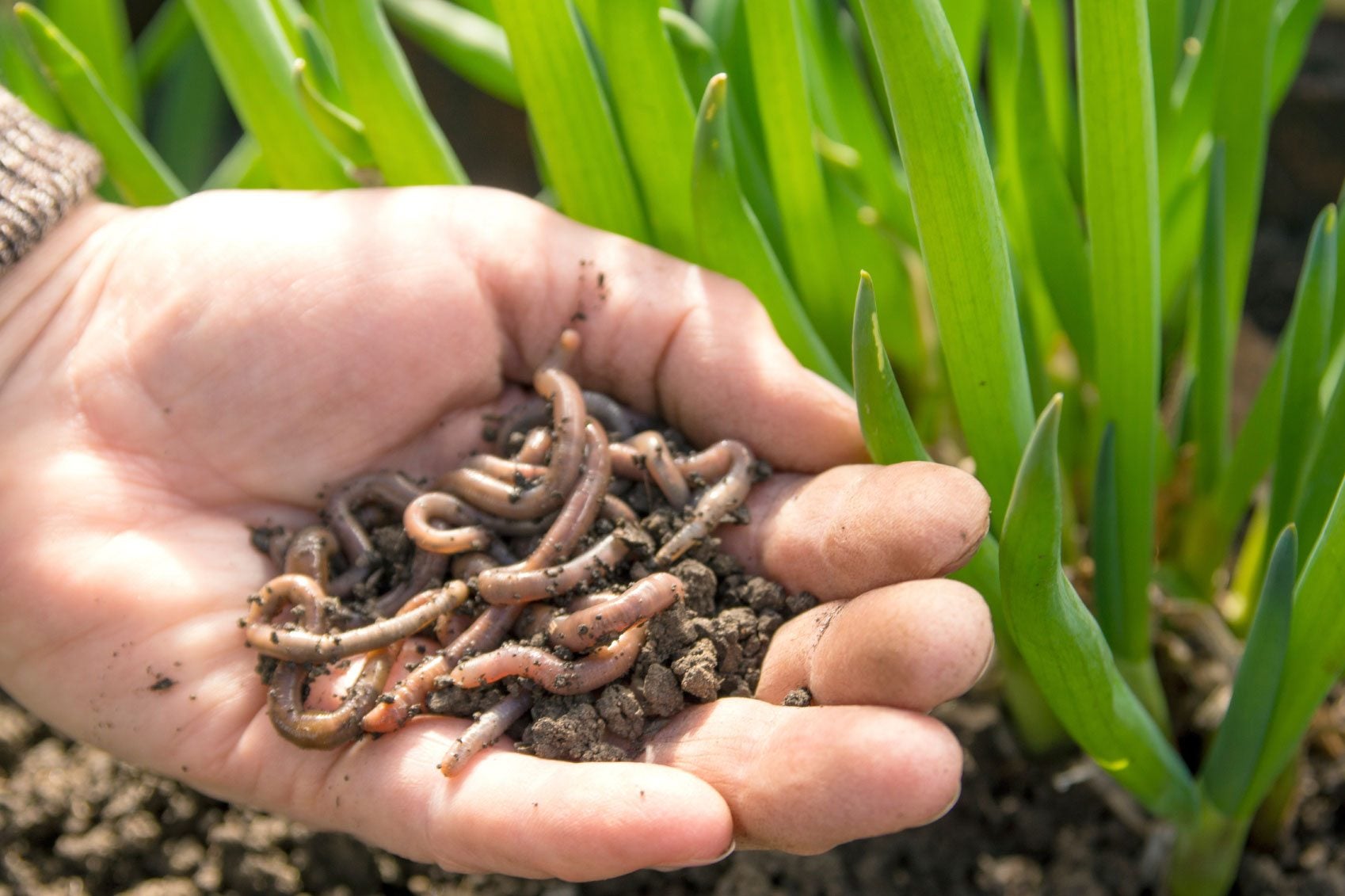Adding Worms To A Compost Pile - How To Attract Earthworms


Earthworm activities and waste are beneficial to the garden. Attracting earthworms provides the organisms that loosen soil and add important nutrients for better plant growth. Learn how to attract earthworms for optimum plant health and porosity. The organic and natural gardener may wonder, “Where do I get earthworms for garden health?” Outdoor vermicomposting can produce some of these important creatures and scores more can be encouraged to make your garden their home with specific cultivation practices. Let's learn more about adding worms to a compost pile.
Where Do I Get Earthworms for Garden Use
Unless your landscape is in a location devoid of organic matter or in sand or dense clay, you already have a supply of worms. The healthiest gardens will have the largest number of these animals, which live deep in burrows and bring up soil as they move through the medium. Their castings are the feces of earthworms and contain compounds that increase plant growth. Outdoor vermicomposting will provide food for earthworms and increase the population. Vermicomposting is the practice of providing bedding and a home for worms and feeding them. This is done in special containers or boxes and the resulting castings are collected and added to the soil. Use no-till soil management and other cultivation practices for attracting earthworms to large areas of the garden. You can also purchase earthworms from garden supply stores or even bait shops and spread them around your yard.
How to Attract Earthworms
Earthworms feed on decaying organic matter. When attracting earthworms, you should provide plenty of food for these beneficial animals. Work in compost, leaf litter, and other organic material into the soil. Many worms live within the top 12 inches (31 cm.) of soil, so just a shallow incorporation of nutrients will provide them with necessary food. You can simply lay a mulch of organic material on the surface of the soil too. Thick layers of mulch will protect the moisture in the soil and encourage worm activity. This will also prevent you from disturbing earthworm burrows. You don't want to disturb the soil further than 12 inches (31 cm.), as the larger night crawlers live in permanent burrows that are several feet (1 m.) below the soil surface. Do not use any pesticides in your garden, which can kill earthworms. These would include Malthion, Benomyl, and Sevin, all of which can adversely affect worm populations. If you keep chickens, let them feed in areas where you aren't trying to encourage worm populations. If you are bringing in earthworms, settle them on a cloudy day, under organic material in a warm, moist area as summer's heat can drive earthworms deep into the earth or even away from your garden. To attract them to an area, water the soil so that it is deeply moisturized. This mimics the rainy days that bring earthworms to the surface of soils. A high worm population in your garden is beneficial to wildlife, soil conditions, and the health of plants. Attracting and adding worms to a compost pile creates the equivalent of 1/3 pound (151 g.) of high-quality fertilizer for your plants.
Gardening tips, videos, info and more delivered right to your inbox!
Sign up for the Gardening Know How newsletter today and receive a free copy of our e-book "How to Grow Delicious Tomatoes".

Bonnie Grant is a professional landscaper with a Certification in Urban Gardening. She has been gardening and writing for 15 years. A former professional chef, she has a passion for edible landscaping.